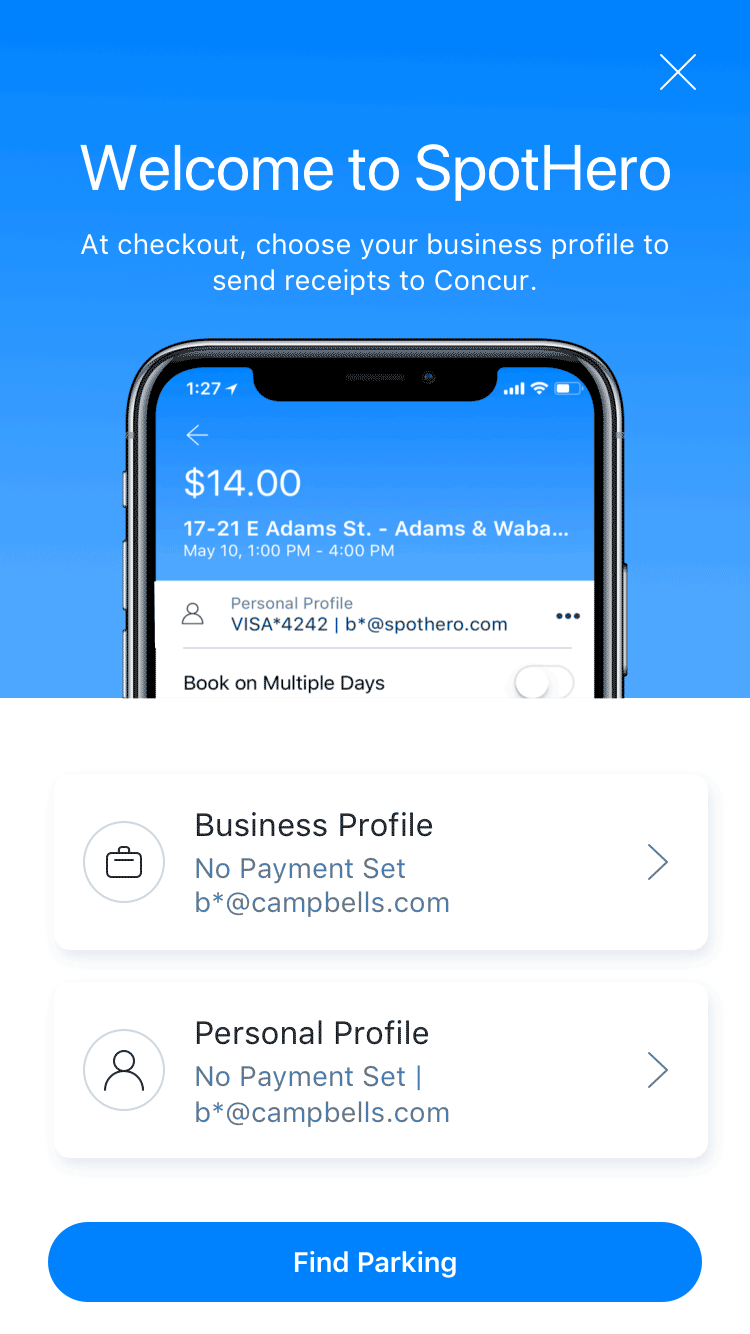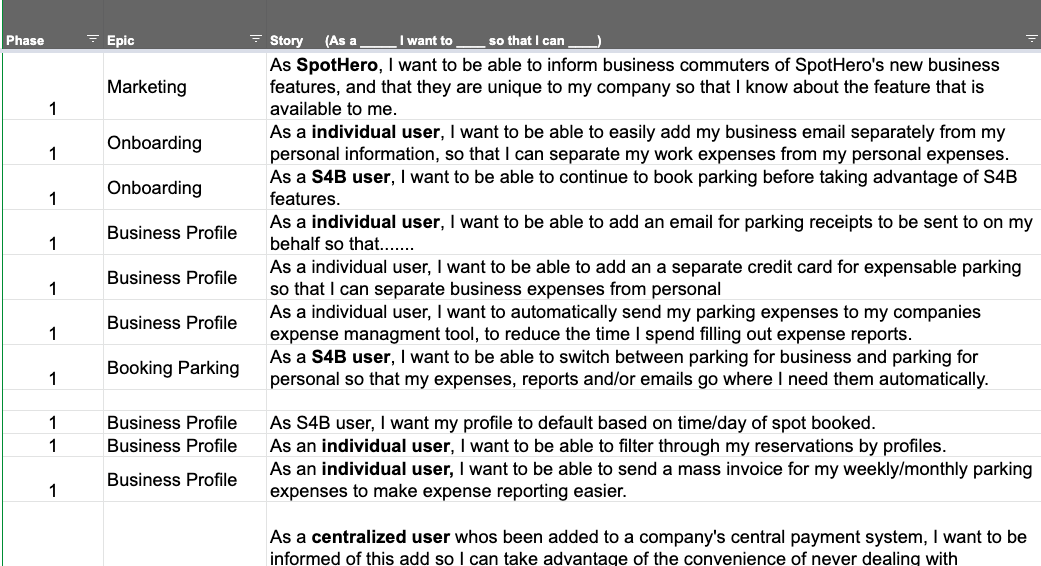SpotHero for Business
SpotHero had already become the go-to app for those driving to work everyday, but what about those who are driving for work? Knowing that travel managers are always looking for ways to save on travel expenses for their organizations, and that parking is often an overlooked expense, we found an opportunity. Will SpotHero expand it’s reach by working with travel managers? If we build tools for employees to easily expense their parking, will SpotHero become their go to for not only parking for work but also for parking outside of work?
Focus: UX Research | R&D Innovation | Mobile Product Design (UX & UI Design)
Year 2017
My Role: Product Designer & Product Manager
Platforms Responsive Web, iOS, Android, Email
Time to Initial Launch: 4 months
Credits to: Business Development Partner - Becca Rabinowitz
The Goal
Create a product that allows companies to save on their employee’s work-related parking expenses, and allows employees to be quickly and easily reimbursed for work-related parking expenses.
Easily Separate Expenses
For companies to save, their employees need to be incentivized to use SpotHero. Employees will want to either not have to pay for the parking out of their pocket, or when they do, be quickly reimburssed.
Manage Parking Expenses
Travel managers know that they are reimbursing parking, but they don’t know how much. Step one for managing expenses is to understand how much is being spent in the first place.
Travel Manager Discovery
We interviewed travel managers of different size companies that expressed interest in controlling their company’s parking spend. From this we learned (a) the context of their day to day work and (b) what features were most important to them.
Card Sort
Using a moderated card sort, we were able to learn more about which features were most important to a travel manager
From this we made a list travel manager needs (and other ideas we heard but invalidated)
From Usability & Interviews, We summarized findings into our top user stories to focus on.
Card Sort Results of Travel Manager Needs
Employee Discovery
To move quickly, we combined end user interviews and usability testing in one. This allowed us to validate there is a need for business profiles in SpotHero, while testing concepts.
We Learned
The value props of a business profile were (1) Separating payments and receipts by personal/ business and (b) expense reporting tool integration, allowing parking expenses to automatically be sent to an expense tool, such as Concur.
Because we created a business profile, customers expect a personal profile
Users won’t think to use SpotHero for Business without a personal incentive.
(more on this later)
“I would use it more if I could get some sort of points and use [it] for personal”
High-Fi Design Iterations
This was a new product, but it was being integrated into an existing product with existing patterns, so to move quickly designs were done and iterated on in high-fidelity. This was a collaborative process with (1) Back end engineers/architects (2) Front End engineers (iOS, Android & Web), (3) Product Marketing, and (4) The Business Manager for SpotHero for Business. There were a lot of moving parts as well:
Travel Manager Portal
Onboarding in App
Some customers will want a business profile without being persuaded by their company, for them we needed an enrollment process from the app.
Iteration
From here we continued iterating on (1) the pop-up and (2) the order of the flow based on data where we found most customers were dropping at either the pop-up (as expected) or entering a work-email.
Steps Taken:
User Flow Analysis
Iterations
A/B Moderated Usability Testing
Live Multi-variant testing
By moving payment first, the hypothesis was that most customers will understand the benefit of a business profile faster.
We A/B tested each change, and found the above flow of the new pop-up, and payment first, to win. We tried other variations as well (defaulting email to radio buttons, etc.).
Onboarding from Web
Our strategy was always to have Travel Managers do the marketing for us, and that was mostly likely going to happen from a company intranet, or email while employees where at their desk.
On the web we made sure to give a clear value prop to the employees specific context. If the company used Concur for expense management, the flow uniquely called out Concur. Once the employee finished creating an account or connecting to an existing SpotHero account, a Branch link took them to the app for any final setup needs.
Learnings
Since it’s quick launch (4 month from inception to production), SpotHero for Business’s various product pieces (Admin Panel, Employee Enrollment, General User Enrollment, and App Profile) have each been iterated on multiple times to try and reach a 10% penetration goal, that was set by comparisons from Uber for Business.
We never got to our goal, and with a second round of deep research found the main blockers, one of which we learned in our initial research from the beginning: customers expect there to be a personal benefit to using SpotHero for business parks. The company chose to never give any sort of reward for this usage, and thus the incentive to remember and use SpotHero for parking that work wasn’t there. Employees didn’t care strongly about saving their company money.
I have since learned to tie initial learnings into each part of the product, and always return to them. This was a turning point in my career, where I finally realized the value of a well documented and publicized customer archetype (or persona).






